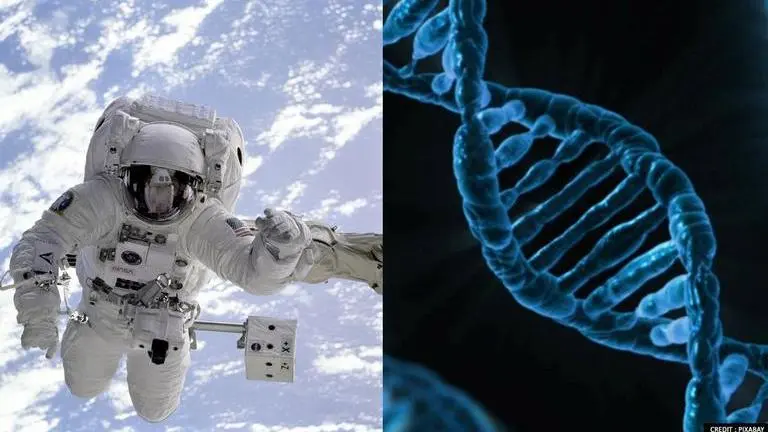Updated 2 July 2021 at 05:49 IST
Astronauts successfully demonstrate Genetic editing in space for first time
For the first time in an experimental method, astronauts successfully edited genes in space. CRISPR/Cas9 genome editing technology is used to induce DNA damage.
- Science News
- 2 min read

For the first time, astronauts have successfully completed an experimental gene-editing technique in space. The procedure is critical for astronaut's safety because it attempts to examine DNA repair in yeast cells in a way that can be done totally in space. DNA damage can occur as a result of environmental causes such as UV radiation exposure. Ionizing radiation (heat or light that steals electrons from atoms) that permeates space makes that risk larger outside of Earth's shielding atmosphere.
Astronauts successfully edit genes in space
CRISPR/Cas9 genome editing technology is used to induce precise DNA damage in the new procedure, which was tested onboard the International Space Station. Scientists will be able to examine the repair mechanisms in greater depth than they could with radiation, which is more difficult to use in specific ways, said reports. The method concentrates on double-strand breaks, which are among the most dangerous types of DNA damage since they can result in cell death.
In a spaceflight setting, the yeast cell experiment was the first time an organism's genome was altered, DNA was repaired, and then sequenced. Future studies could improve on these methods to better imitate complex DNA damage, potentially leading to new ways to protect astronauts as well as inquiries into other long-term space exposure and exploration said reports.
Genes editing in space for the first time
Sebastian Kraves, a senior author of the study which was published in Plos One, said that not only was the team able to successfully deploy novel technologies like CRISPR genome editing, PCR, and nanopore sequencing in an extreme environment, but they were also able to integrate them into a functionally complete biotechnology workflow that could be used to study DNA repair and other fundamental cellular processes in microgravity.
Advertisement
A variety of advancements are being made to assist astronauts in surviving in space. To protect people from fatal x-ray radiation, a suncream made of skin pigment is being developed, using a substance that has never been discovered in nature. Reportedly, scientists have just discovered that sperm may survive in space for 200 years without causing DNA damage, which will aid scientists in planning for mammals – including humans – to reproduce outside of our own planet.
Picture Credit: Pixabay
Advertisement
Published By : Srishti Goel
Published On: 2 July 2021 at 05:49 IST
